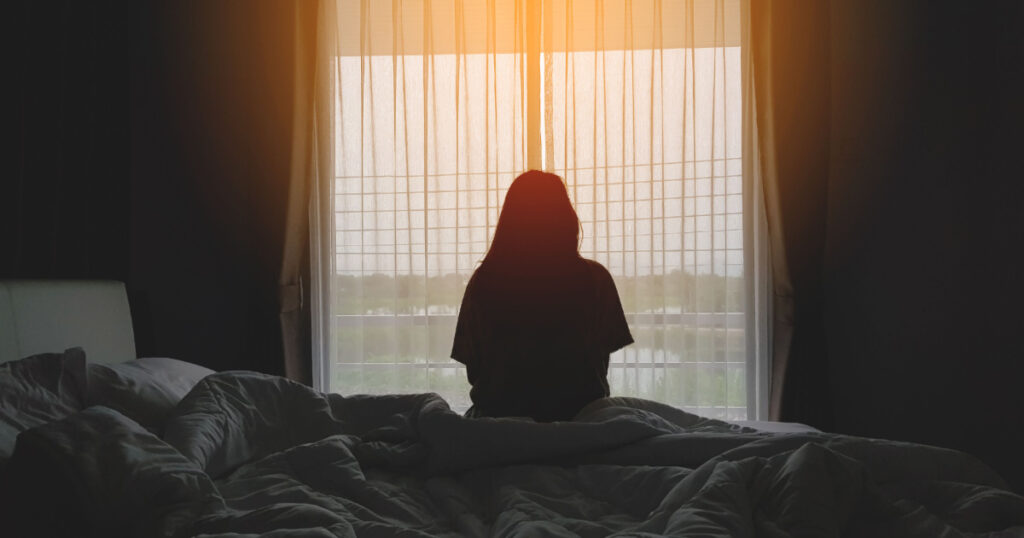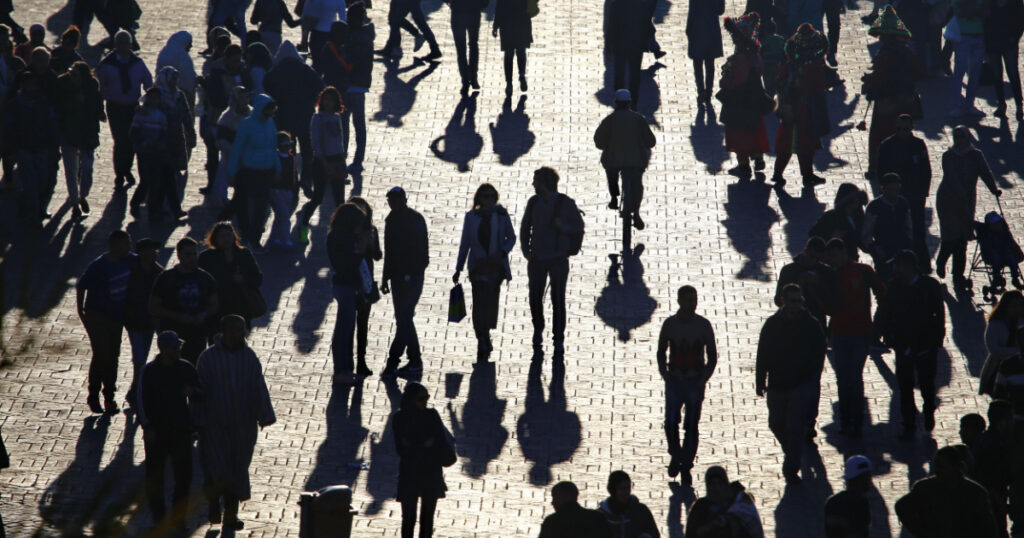Loneliness is a strong feeling of abandonment or rejection, an unpleasant emotion that arises in response to isolation [1]. It manifests as feelings of anxiety due to a lack of human connection or social interaction, usually leaving a person feeling detached, vulnerable and distressed. Loneliness is a normal human emotion, such as anger or happiness, but it becomes a problem when it interferes with the processes of daily living, preventing a person from living a normal, healthy life.
Loneliness doesn’t merely bother people who don’t have best friends or partners

It’s common for people who lack family ties and ancestral background to feel lonely, often feeling as though they are alone, isolated and singled out in the whole world. Loss of one’s lifelong partner, a dear family member or a friend could also cause chronic loneliness due to the inability to connect with another person.
Read More: This Nightclub for the Elderly is Helping Fight Loneliness
7 Signs you cannot miss when you are battling loneliness

A study carried out in San Diego tested 304 adults aged between 27 and 101 on a 20-point loneliness questionnaire. It was discovered that an average of 3 out of every 4 of the participants were dealing with some form of mild to severe loneliness [2]. It was a huge shock to the researchers because the American population is globally considered a normal and happy one. A lot of lonely people do not know what to tag that awful feeling gnawing at the walls of their hearts.
1. Binge-watching television

When you are lonely, you’re subconsciously trying to find ways to occupy yourself and create distractions from your reality. A 2015 study conducted by the University of Texas tested 316 adults between the ages of 18-29 [4]. It was discovered that the participants who showed strong signs of loneliness were more likely to binge-watch television series, watching countless numbers of episodes and movies at a sitting in a subconscious bid to drown out isolation. This, of course, doesn’t mean that binge watching will cause loneliness, but it could be related to an existing condition.
2. Weakened immune system

Loneliness often manifests in fatigue and physical lag. When a person is chronically lonely, their entire body usually feels heavy and painful to drag around. Two researchers from the UCLA discovered that people who were dealing with loneliness over a long period tend to over-express certain genes, some of which are tied to immune system activation and inflammation [5].
If you notice that you’re usually too weak to get around or falling sick more often, this could be a serious adverse effect of loneliness.
3. Self-medication

A great majority of drug addicts in the world today are lonely people seeking escapes from a lonely reality. Dealing with loneliness over a long period can cause a person to become dependent on narcotics or anti-depressants in a bid to relieve the unhappy situation [6].
4. Taking lengthy baths in hot water

The need for social warmth and human interaction can cause a person to improvise sometimes, seeking warmth wherever they may find it. Hot baths are relaxing, calming, and soothing. A 2012 study (comprised of a series of smaller surveys) discovered that lonely people tend to spend longer in the hot baths as a means of fulfilling the need for a physical warmth experience [7].
Read More: 14 Signs You Have High Functioning Depression, Because It Can Look Different To How You’d Imagine
5. You may spiral into depression

Loneliness is not depression, but one can lead to the other after a while. A lonely person would slowly begin to develop symptoms of depression, such as anxiety, chronic sadness, loss of sleep, loss of appetite, constant fatigue, lack of concentration and depletion in self-esteem [8]. Loneliness can lead to Major Depressive Disorder where a person may also display self-harm and suicidal tendencies.
6. Compulsive buying disorder

Lonely people often find themselves acquiring possessions they do not need, even when they are at risk of going financially bankrupt. Materialism is a defense mechanism against the unpleasant feeling of isolation, usually manifesting in excessive, uncontrolled shopping and impulse purchases. A 2013 study discovered that lonely single people were more likely to engage in retail therapy for the pleasure and thrill-seeking rather than a need for the materials being purchased [9].
7. You are surrounded by lonely people

Just like happiness, loneliness is contagious and you can easily catch it from people around you. If you spend a lot of your time in the company of people who do not like to interact and prefer to isolate themselves from the world, you are most likely going to follow the norm soon enough.
Read More: How to Reduce Stress and Anxiety in 10-Minutes or Less
10 ways to overcome loneliness

Loneliness is not a hereditary trait or a permanent condition. It’s merely a state of mind that can be controlled, managed, and subsequently overcome.
1. Accept your emotions and resolve to handle the situation

The first step to getting past loneliness is acknowledging the fact that you need human connection. There’s no shame in that. Everyone at some point goes through loneliness as a human experience. It’s potentially destructive to try to fold away your feelings. Lay them out and face them head-on. Make a willful resolution to take charge of your social life and make things better for yourself.
2. Make significant efforts to connect with people around you

Depending on your current situation at the moment, this may seem a bit difficult or even impossible, but all it takes is just one, bold leap. Don’t think about the consequences of not getting accepted. Try not to worry too much about fitting in or standing out. Just connect genuinely and talk to your friends more. It’s helpful to let them know what you’re going through at the moment. Hang out with them more often and genuinely enjoy their company. It’s a gradual process, but with time, you’d come to find your sense of belonging again.
3. Engage in innovative activities

Sometimes, even when you’re hanging around friends and family, that unpleasant feeling of loneliness will continue to gnaw at your guts. You need to find positive outlets for bad energy other than binge-watching House of Cards or abusing drugs. Engage in interesting activities such as painting, writing, reading, dancing, or building structures. Do anything that would enable you to channel your inner creativity to the forefront.
4. Break out of your comfort zone

Loneliness would often drive a person to create a world of their own in an impenetrable bubble. Lonely people usually live monotonous lives where everything is predictable, well-ordered, and scheduled. This can lead to a mental breakdown in the long run. Get out more and try new things. Cross your boundaries and explore. You’d find yourself interacting more with people when you pop that bubble and step out into the open world.
Read More: 10 Strange Behaviors of an Authentic Empath
5. Take care of yourself

This doesn’t mean you should spiral back into your comfort bubble. If you must, it has to be done with a different outlook on the situation. Self-nurturing involves engaging in activities that put your mind and body at peace, healing your heart from the strains of abandonment and letting out negative energies and vibes. Take yoga classes, do a spring clean, try baking a random batch of cupcakes, and read Fifty Shades of Grey. Think of an activity that has always excited you but at the same time seemed to be beyond your comfort zone. Then go ahead and do it.
6. Keep a journal or a diary

It often helps to pen down your emotions and keep things real to yourself. Don’t use a laptop or any technological gadget. Use a good old pen and paper to write down your journey so far and how you came to be at this point. It’s amazing to write things down because you’d get everything going on in full perspective. You’d clearly understand the trend of events in your life and realize that even if you have made some mistakes, you deserve a second chance. You’re lonely for a reason, and writing your emotions down would gradually unfold the solutions to your problems.
7.Engage in physical therapy

Exercise, yoga, meditation, karate – do something to channel positive energy back into your being. Physical exercise has been an age-long therapy to depression and loneliness, inciting several biochemical changes in the body that counteract the effects of loneliness [10]. It also causes your body to release endorphins, happy hormones that enable you to cope with stress or pain.
8. Join a group

Conversation is a powerful way to fight loneliness and keep it under control. It doesn’t necessarily have to be in an established support group before a conversation is considered therapeutic. Join a group where there are people you CAN talk to. Take classes where you can meet and interact with other people, such as baking, arts and crafts, singing, acting, dancing, and even flower-planting. Make new and try to connect genuinely with them from the start. Talk about yourself and listen to their stories. It’ll take some time, but you’d gradually begin to express yourself more easily and interact on a more familiar level.
Read More: The Number of Americans with No Close Friends Has Doubled Since 1985
9. Resound it to yourself that loneliness is not the same thing as being alone

Loneliness is more difficult to fathom out when you’re surrounded by people and still battling with isolation. You’re not connecting or bonding with anyone. Former ties seem as though they are progressively getting severed. You feel that you’re misunderstood and that generally, no one loves you the way you believe should be loved. Remind yourself that you can teach them how to love you. Help them to understand you and let them get through any walls you may have put up. Try not to play the victim card and reach out to the people who love you, even if you are in doubt of the fact.
10. There’s no shame in asking for help

Often, lonely people don’t know how to reach out or connect with other people. They may be battling with low self-esteem or inferiority complex, two frames of mind that would actively prevent anyone from interacting comfortably with others. You may feel that you are not good enough for anyone to want to be seen around you, and you may end up taking on an antagonistic attitude to protect yourself from being rejected first.
The Bottom Line

It’s okay to talk to someone you trust. Your family, friends, colleagues, acquaintances and professional therapists. There’s no shame in seeking counseling and advice. Open up to someone who can walk with you through the journey of understanding the human connection. It’s always helpful to share your problems and set them in clear perspective.
Read More: High-Functioning Depression: 16 Truths Sufferers Wish You Knew
Sources
- Editor. Loneliness. Britannica. https://www.britannica.com/science/loneliness. Retrieved 16-09-19
- Thompson, Dennis. 3 in 4 Americans Struggle with Loneliness. U.S. News: https://www.usnews.com/news/health-news/articles/2018-12-18/3-in-4-americans-struggle-with-loneliness. Retrieved 16-09-19
- Brown Lachlan. “I’m lonely” – 17 things to do if you think this is you. Hack Spirit. https://hackspirit.com/feeling-lonely-here-are-10-things-you-can-try-to-ease-the-pain/. Retrieved 16-09-19
- The University of Texas. Feelings of loneliness and depression linked to binge-watching television. Eurek Alert. https://www.eurekalert.org/pub_releases/2015-01/ica-fol012615.php. Retrieved 16-09-19
- Gammon, Katharine. Why Loneliness Can Be Deadly. Live Science: https://www.livescience.com/18800-loneliness-health-problems.html. Retrieved 16-09-19
- Boyle, Matthew. Why Addicts Are Often Lonely People. Psych Central: https://psychcentral.com/blog/why-addicts-are-often-lonely-people/. Retrieved 16-09-19
- Bargh & Shalev. The Substitutability of Physical and Social Warmth in Daily Life. PMC. https://www.ncbi.nlm.nih.gov/pmc/articles/PMC3406601/. Retrieved 16-09-19
- Mushtaq et al. Relationship Between Loneliness, Psychiatric Disorders and Physical Health? A Review on the Psychological Aspects of Loneliness. PMC. https://www.ncbi.nlm.nih.gov/pmc/articles/PMC4225959/. Retrieved 16-09-19
- Press. Materialism and Loneliness: Is There Really a Vicious Cycle? The University of Chicago: https://www.press.uchicago.edu/pressReleases/2013/July/729Pieters.html. Retrieved 16-09-19
- Staff Writer. Depression and anxiety: Exercise eases symptoms. Mayo Clinic. https://www.mayoclinic.org/diseases-conditions/depression/in-depth/depression-and-exercise/art-20046495, Retrieved 16-09-19

